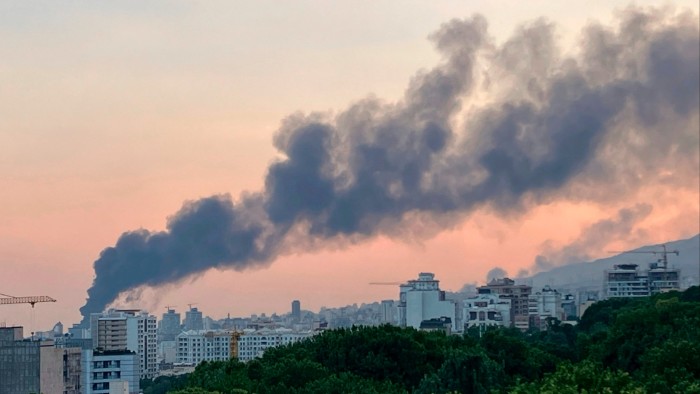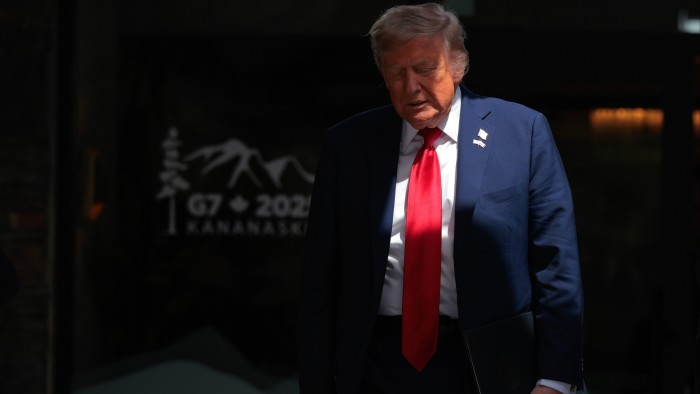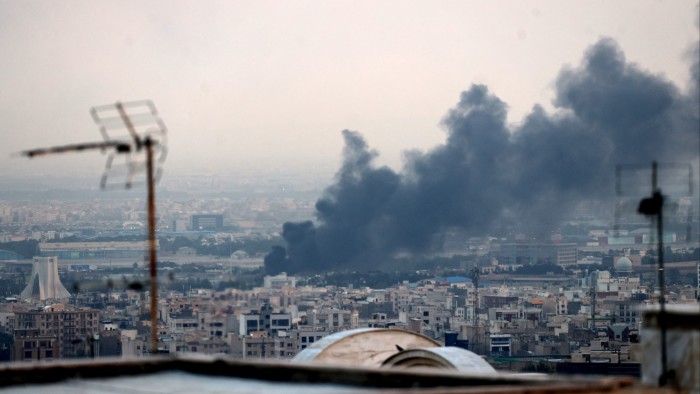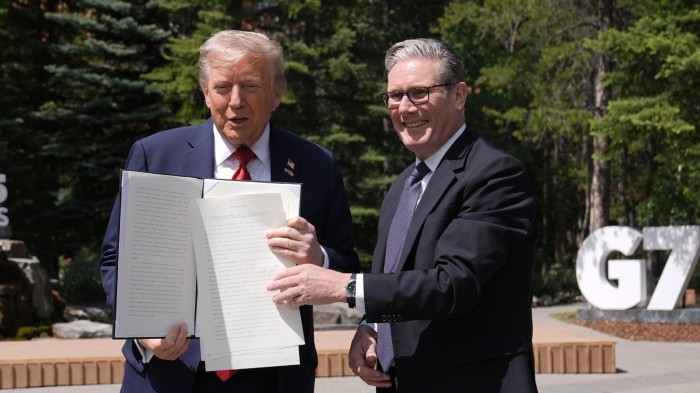Iran will only agree to talks to end Middle East crisis if Israel stops bombing

Unlock the White House Watch newsletter for free
Your guide to what Trump’s second term means for Washington, business and the world
Iran has told other countries in the Middle East that it will only agree to negotiate an end to the war with Israel and resume talks over its nuclear programme if Israeli forces halt their bombing campaign against the Islamic republic, according to diplomats.
One diplomat in the region said Tehran’s message in discussions with neighbouring Gulf states was “very clear” — that it would not negotiate while under attack.
“If the Israelis stop, they will stop, that’s the messaging we are getting. But they will not negotiate under fire,” the diplomat said.
Iranian foreign minister Abbas Araghchi on Monday said that if US President Donald Trump was serious about diplomacy he should pressure Israeli Prime Minister Benjamin Netanyahu to end the war.
“If President Trump is genuine about diplomacy and interested in stopping this war, the next steps are consequential,” he said on X, the social media platform. “It takes one phone call from Washington to muzzle someone like Netanyahu. That may pave the way for a return to diplomacy.”
Speaking at the G7 meeting on Monday, Trump said the war was “painful for both parties, but I’d say Iran is not winning this war, and they should talk”.
“And they should talk immediately, before it’s too late,” he added.
Iran was set to hold a sixth round of indirect talks with the US last weekend as part of Trump’s efforts to pressure Tehran into accepting a deal to curb its expansive nuclear programme.
The US president has said he would prefer to secure an agreement to resolve the nuclear stand-off, but has also threatened military action if diplomacy failed.
But the US’s indirect talks with Tehran were upended after Netanyahu’s government on Friday launched its war against the republic with waves of air strikes targeting a nuclear plant, top military commanders and missile factories.
In the days since, it has widened its assault to include energy facilities, the state television complex and other infrastructure as the republic faces its gravest threat since its war with Iraq in the 1980s.
Iran’s health ministry said the bombing campaign had killed more than 200 people.
Tehran has responded by launching waves of missile barrages across Israel, which have killed more than 20 people, according to Israel’s rescue services.
The republic’s Gulf neighbours — Oman, which was facilitating the nuclear negotiations, Qatar and Saudi Arabia — have been talking to Iranian leaders and the US in a bid to de-escalate the conflict and resume diplomatic efforts to resolve the long-simmering crisis.
Iranian leaders have publicly vowed to retaliate as long as Israel is attacking the republic, and believe Netanyahu is seeking to destroy the regime. Israeli officials have said the offensive could last for weeks.
A second diplomat said Iran was open to diplomacy and reaching a nuclear deal with the US if it deemed it to be fair and credible, but added that Tehran would only do so if Israel halted its offensive. A western official said he was hearing the same message.





